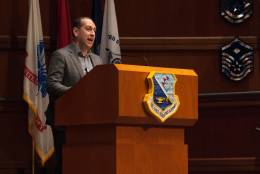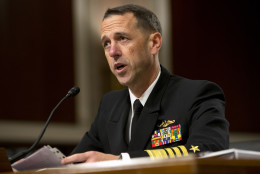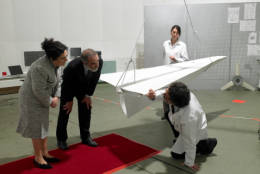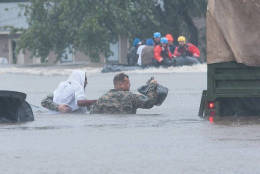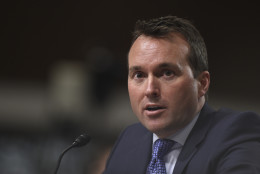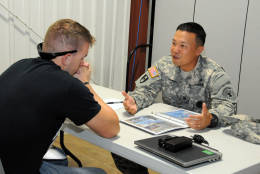Defense Department
-
The Pentagon last week made contract awards in its promised expansion of federal government’s first-ever bug bounty — the “Hack the Pentagon” challenge which would up finding and closing 138 separate cybersecurity vulnerabilities in DoD’s public-facing websites earlier this year.
October 24, 2016 -
Congress and the Government Accountability Office are asking new questions about the long-term viability of the Military Privatized Housing Initiative.
October 24, 2016 -
The Air Force is standing up a new human capital analytics office, hoping to make better use of the data it already has in order to help solve ongoing recruiting and retention challenges.
October 20, 2016 -
The Chief of Naval Operations is in charge of manning, training and equipping the Navy. And Adm. John Richardson, the current CNO, says that means civilians too. In a bit of an unusual step for a military service chief, Richardson issued his own framework for improving the health of the civilian workforce on Friday.
October 19, 2016 -
The Pentagon’s startup-style outfit for reaching out to innovative companies may have cracked the code for speeding up DoD’s famously ponderous acquisition system.
October 17, 2016 -
The project, known as the Army Private Cloud Enterprise, represents the first time the Army has contracted with a private company to run a large-scale data center inside the gates of a military installation.
October 14, 2016 -
Welcome to the #FedFeed, a daily collection of federal ephemera gathered from social media and presented for your enjoyment.
October 13, 2016 -
The crucial partnership on military basics between the Defense Department and Congress is badly frayed, and the military will be the worse for it.
October 13, 2016 -
The Defense Department will begin the much-anticipated rollout of its new commercially derived electronic health records system in February, according to a new deployment schedule officials announced on Tuesday.
October 12, 2016 -
Nora Bensahel, distinguished scholar in residence at American University, and retired Lt. Gen. David Barno, a distinguished practitioner there, are co-authors of The Future of the Army, published by the Atlantic Council. They walked Federal Drive with Tom Temin through some of the budget challenges the Army currently faces.
October 11, 2016 -
National Guard units were activated in several East Coast states over the weekend to help with the relief effort in the aftermath of Hurricane Matthew.
October 10, 2016 -
Eric Fanning, the secretary of the Army, said last week that he's ordered a new initiative designed to reduce time-consuming requirements directed by Department of the Army headquarters, particularly with regard to training.
October 10, 2016 -
The Army closed out the fiscal year that ended a little over a week ago having met its recruiting goals for the first time in five years.
October 10, 2016 -
The Army is taking a fresh look at how much of the development and sustainment of computer code ought to be left to contractors and whether it’s time to bring some of that work in-house.
October 10, 2016 -
The Navy is stuck somewhere back in the Cold Car or maybe World War II. In order to properly equip with new ships, the Navy must change. Bryan McGrath, managing director of the Ferry Bridge Group, Joins Federal Drive with Tom Temin with the whys and hows.
October 07, 2016



